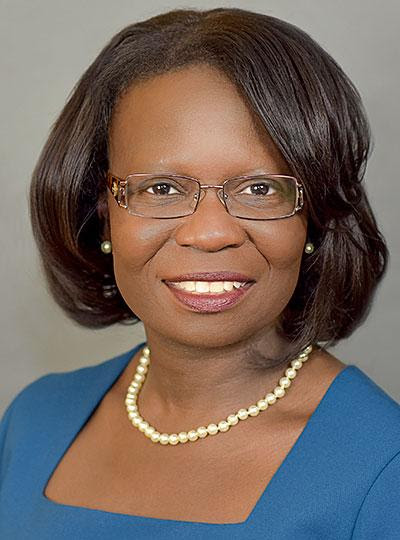
Ms. Fleming is the CIO for Boeing Defense, Space and Security. In this role, she is responsible for delivering innovative digital solutions to align with BDS business strategy, supporting the growth of Boeing’s business by partnering with the BDS team on IT-related content and technology enablement for BDS programs, and delivering efficiencies for BDS programs leveraging data analytics and other technology enablers. We wanted to get her thoughts on leadership lessons, advice for individuals seeking a CIO (or equivalent) position and advancing STEM charities.
1) You have been with Boeing now for a little over 4 years. Could you share a little bit about your role there and what drove you to accept it?
I joined Boeing to lead IT for Boeing Defense, Space and Security. I was charged to establish a consultative approach to deliver digital solutions to align with the division strategy, meet program requirements and achieve mission objectives. I am responsible for the IT strategy for the division across our portfolio of defense products spanning seabed to space. Our goal as an IT team is to deliver value and enhance program performance via enabling digital technology. In Q42020 I took on an additional role to lead the production systems applications team across The Boeing Company for sales, marketing, engineering, manufacturing, quality and aftermarket support applications and digital capabilities. What attracted me to Boeing is the mission of supporting our defense customers and the opportunity to work with some very talented leaders. What has kept me here is the challenge and opportunity to deliver value and positively impact performance by partnering with my functional and line of business peers on digital and analytics solutions.
2) Given the disruption of your industry over the last year, what has been your biggest leadership lesson that you’ve learned since the beginning of the pandemic?
The greatest leadership lesson I have learned in the past year through the impacts of COVID-19 is that the fundamentals never get old. That includes: taking care of your people, communicating early and often and focusing on what’s most important, to deliver with speed.
3) You’ve held senior technology leadership roles for over 20 years. What advice would you give to leaders that are seeking a CIO or equivalent leadership role?
My advice to people early in their career is to build a strong foundation of technology fundamentals so you understand all layers of the software stack and have experience that spans from cloud and hardware to applications. It’s also important to have a strong understanding of cybersecurity, mobile and analytics. Upon that foundation you can build strategic thinking, financial management, consultative skills and project planning experience that enable you lead, plan and deliver on commitments. Most important is to be a lifelong learner because this field is one of constant evolution.
4) You actively volunteer with several STEM organizations in our region, including Techbridge Girls and are the immediate past board chair for the Women in Engineering (WIE) program at the University of Maryland. Could you share a little about those organizations and the work you do for them? Also, what advice would you give to others that are looking for opportunities to join not-for-profit / charitable boards?
An obligation of service to the community in which I live is a value that was instilled in me early in life. My passion for women and minorities in STEM is my way to contribute to the next generation of talent in a field that has changed the trajectory of my life. Techbridge Girls exposes girls in underrepresented communities to STEM via elementary after school programs and weekend conferences. UMD WIE is focused on providing an ecosystem of support from recruitment to retention for women at the University of Maryland with a goal to increase representation of women in the school of engineering. I wish I had these resources at those stages of life, so I am honored to be able to contribute to their success as a speaker to young girls / women and advisor on the board. For others wishing to join not-for-profit boards, I would suggest finding an area you are passionate about, think about how you can contribute your time, treasure and talent and reach out. This is a great way to develop your strategic thinking and operational skills while doing good at the same time. Members in SIM have critical skills in digital transformation, cyber and project management that are valuable resources for non-profits that can help to elevate their impact.
5) You’ve been a SIMCAC member for a little over 8 months now, and we’re so grateful for the perspective and insight that you bring to our community. What have you found valuable about your membership and what would you say to others that are considering membership?
The most valuable part of my membership has been having a network of peers facing similar challenges and our ability to learn from one another’s best practices and lessons learned. This was especially key during the pandemic when we were all navigating the same unchartered waters. The formal seminars were informative and the social gatherings created a much-needed sense of connection in a socially distanced world.